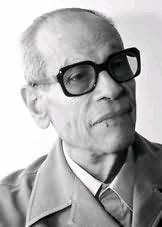where is love? Where are you, my God? Why did you forsake us?”
The city was now empty except for two prisoners- my beloved and I-and a few guards appointed by the priests. When I wished to return to his palace to see him and talk with him, the guards stopped me. I was not allowed to leave the palace, they said. They did not allow me even to write to him. I knew then that there was nothing I could do but await my death in this prison. I tried sending messages to the new pharaoh and to my father and Haremhab, stating my simple request to see Akhenaten. But the guards told me I was allowed no contact with the outside world. I waited patiently and without hope for my days to end. I was no longer aware of the passage of time. I prayed constantly, until I finally regained all my faith in the One God. Indeed, I believe now that the final victory will be for the Sole Creator.
The chief of the guards came to me one day and said, “I am ordered to tell you that the heretic has died after a long illness. A royal party has been sent to mummify and entomb him according to the royal rituals.”
I did not believe a word he said. My beloved did not fall ill and die. They must have killed him. His soul now rests eternally. One day I shall follow him. I will explain to him why I left him and ask his forgiveness, and he will seat me beside him on the throne of truth.

Queen Nefertiti was quiet, her sweet voice stilled. I bade her farewell, dreading the path that took me away from her. My heart was infused with her beauty.
When I returned to Sais, my father greeted me happily. He asked me about my journey, and I answered him. For days we talked and I recounted the details of my travels. I told my father everything I had learned, except for two things-my growing fondness for the hymns of the One God, and my profound love for the beautiful Nefertiti.
Naguib Mahfouz

Naguib Mahfouz was born in Cairo in 1911 and began writing when he was seventeen. A student of philosophy and an avid reader, his works range from reimaginings of ancient myths to subtle commentaries on contemporary Egyptian politics and culture. Over a career that lasted more than five decades, he wrote 33 novels, 13 short story anthologies, numerous plays, and 30 screenplays. Of his many works, most famous is


